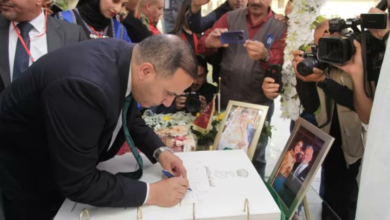Saudi Arabia’s new tourism law allows citizens to rent out homes to tourists

Saudi Arabia’s Ministry of Tourism has approved a new bylaw that will allow citizens to rent out their homes to tourists.
The new regulation could pave the way for rental accommodation facilities like Airbnb, HomeAway, and Vrbo in the country.
The modifications are part of the ministry’s efforts to “keep pace with the renaissance that the Kingdom is witnessing in various fields, which comes as a continuation of the steps we have worked on to achieve the goals of the general strategy for the development of national tourism,” Saudi Arabia’s Minister of Tourism Ahmed al-Khateeb said.
“The regulations aim to contribute to creating an investment-attractive environment in which business ease, innovation and sustainability are taken into account, improving the quality of services provided and protecting the rights of tourists, in addition to supporting the sector and increasing job opportunities for the youth of the country,” he added.
Under the new bylaw, Saudi citizens will be allowed to apply for a permit to rent out their property with the total number of permits issued to one person per property being a maximum of three, according to the ministry.
The new regulations stipulate that a private tourist hospitality facility – which would include an apartment, townhouse, villa, etc. – must be part of a property that has been designated as either for residential or agricultural use.
The owner must also provide an electronic title deed or an electronic lease contract that proves the right of ownership or use of the property pertaining to the permit. The owner must submit all relevant official documents related to the property with their application.
Tourist safety
The ministry also listed several laws to ensure that tourists’ rights are protected when staying at the rented properties.
The owner must ensure that the pictures of the property displayed online are accurate representations. A list of prices for all services in the property must be clearly on display in the residence in both Arabic and English, including any statutory fees and taxes.
The property owner will not be permitted to enter the property occupied by the tourist without prior permission, irrespective of whether the tourist is in the residence or not. The only exception to this clause is if the owner is accompanied by relevant authorities in the case of an emergency situation.
According to the regulations, a tourist cannot be forced to vacate the residential unit after checking in unless the competent authorities are present.
Before being allowed into the property, a tourist must provide a valid ID to prove their identity.










